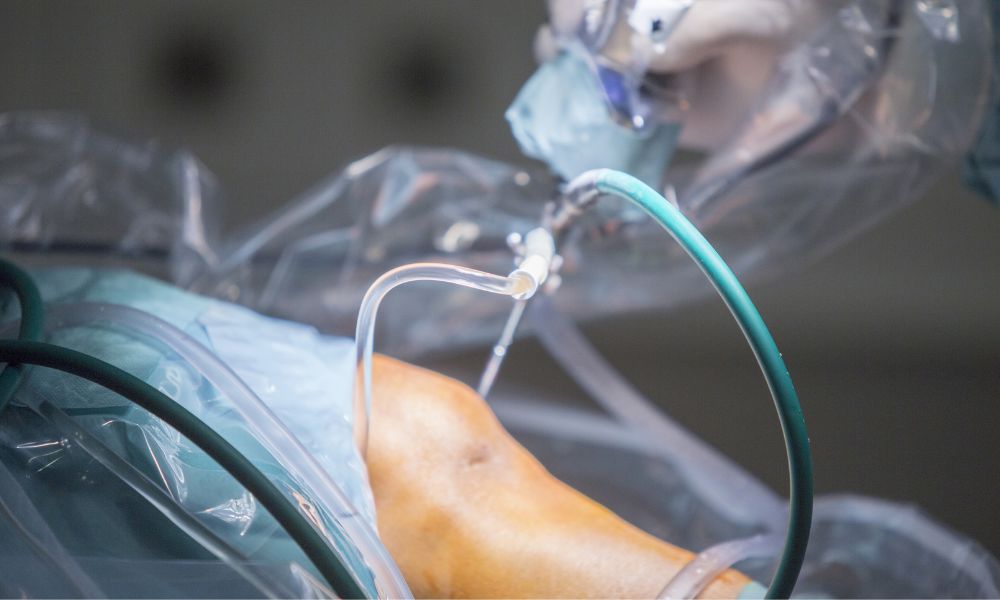Knee Surgeon in Nagpur for specialized treatment and care

Knee Surgeon
Knee surgeons are specialized medical professionals focused on the diagnosis, treatment, and surgical management of musculoskeletal disorders. Pursuing a career in this field can be highly fulfilling for committed and well-trained medical students. For those considering a career in medicine, gaining insight into the duties of an orthopedic surgeon, particularly one who specializes in knee surgery, is essential for effective planning of your educational and training pathways.
A knee surgeon is responsible for diagnosing, treating, and performing surgical procedures on patients with musculoskeletal problems related to the knee joint. These issues may encompass injuries, degenerative conditions, and structural impairments affecting the knee’s bones, ligaments, cartilage, and tendons. The following outlines some of the key responsibilities of a knee surgeon:
- Engaging with patients to assess and diagnose knee injuries and related conditions
- Evaluating the necessity of surgical intervention or suggesting alternative nonsurgical treatment options
- Advising on and analyzing diagnostic imaging techniques, including X-rays and MRIs
- Executing surgical procedures such as total knee replacement, ACL reconstruction, or meniscus repair
- Working in conjunction with radiologists, physical therapists, and other medical professionals to provide holistic care
- Carrying out follow-up examinations to track recovery progress after surgery
Anatomy of the Knee
The knee joint represents one of the most intricate and essential elements of the human body, serving a crucial function in movement and activities that involve bearing weight. As the largest synovial joint, it primarily operates as a hinge joint, offering a combination of stability and flexibility.
Key Components of the Knee Joint:
Bones:
- Femur: Constitutes the upper section of the knee joint.
- Tibia: Constitutes the lower section of the knee joint.
- Patella: The patella enhances the mechanical efficiency of the quadriceps muscle.
Cartilage:
- Articular Cartilage: Minimizes friction and serves to absorb impact.
- Menisci: Fibrocartilaginous components that enhance joint stability and facilitate weight distribution.
Ligaments:
- The Anterior Cruciate Ligament (ACL) serves to inhibit the forward displacement of the tibia.
- The Posterior Cruciate Ligament (PCL) functions to restrict the backward movement of the tibia.
- The Medial Collateral Ligament (MCL)
- Lateral Collateral Ligament (LCL) contributes to the stability of the knee by providing support on the medial and lateral sides, respectively.
Tendons:
- The quadriceps and patellar tendons play a crucial role in enabling movement and contributing to strength.
Muscles:
- Quadriceps and hamstrings control extension and flexion, respectively.
Synovial Fluid and Membrane:
- Lubricates the joint to reduce friction.
Reasons for Knee Surgery
A knee surgeon frequently advises knee replacement surgery as a solution for alleviating pain and disability resulting from serious conditions such as osteoarthritis. This condition is characterized by the deterioration of joint cartilage, which restricts movement and leads to considerable discomfort.
Other reasons for knee replacement surgery include:
- Rheumatoid arthritis
- Injuries to the knee, including fractures or ligament tears
- Degenerative joint disorders
When conservative treatments such as physical therapy, cortisone injections, or pain medications do not yield satisfactory results, a knee surgeon may recommend knee replacement surgery as a viable option for relief.
Treatment Options Before Surgery
A knee surgeon typically investigates noninvasive treatment options prior to suggesting surgical intervention. These options may encompass:
- Non-steroidal anti-inflammatory drugs
- Therapeutic approaches for pain relief
- Supportive equipment such as walking aids
- Weight reduction plans for individuals with obesity
- Injections for viscosupplementation to enhance joint lubrication
The role of a knee surgeon is critical in restoring mobility and improving the quality of life for patients with knee-related conditions. With advancements in medical technology, knee surgeons can offer both innovative surgical solutions and effective nonsurgical treatments tailored to individual patient needs.